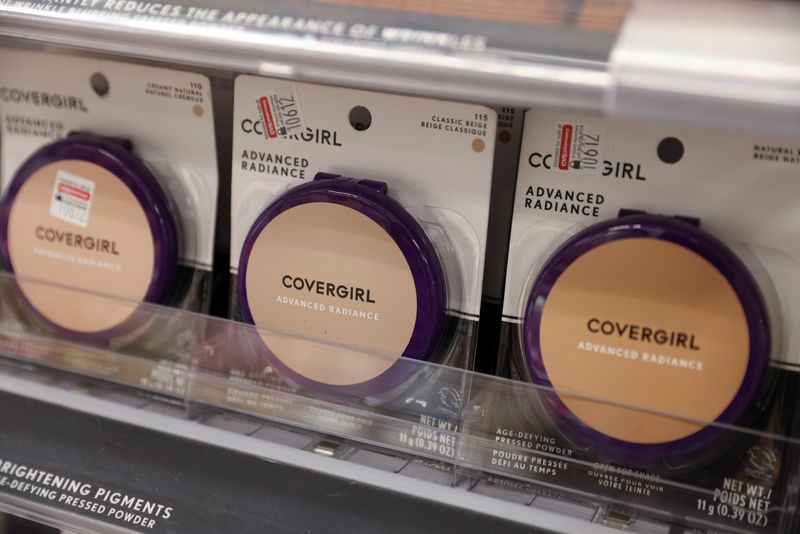Coty forecasts downbeat annual profit as goods, labor costs bite
2023.08.22 08:26

© Reuters. FILE PHOTO: Covergirl makeup, owned by Coty Inc., is seen for sale in Manhattan, New York City, U.S., February 7, 2022. REUTERS/Andrew Kelly/File Photo
By Juveria Tabassum and Ananya Mariam Rajesh
(Reuters) -CoverGirl parent Coty (NYSE:) forecast annual profit below Wall Street expectations on Tuesday, signaling a hit from steeper input and labor expenses even as the company raised product prices to shield itself from higher costs and a strong dollar.
Raw material and freight costs have eased from pandemic-era highs, but a tight labor market is exacerbating the drag of persistent inflation on production costs.
This overshadowed Coty’s quarterly revenue beat despite customers splurging on its high-end and affordable fragrances and cosmetics, ranging from Hugo Boss to Gucci.
Shares of the perfume and cosmetics maker were up marginally in volatile premarket trading.
Chief Financial Officer Laurent Mercier told Reuters in an interview that inflation was here to stay, at least in the first half of fiscal 2024.
“But then we are expecting some easing of these cost of goods inflation in the second half,” Mercier said.
Coty’s cost of sales grew to $502.1 million, from $446.2 million a year ago. The company reported a quarterly adjusted profit of 1 cent per share, missing estimates of 2 cents, according to Refinitiv data.
Coty forecast 2024 adjusted profit between 44 cents and 47 cents per share. Analysts on average had expected a profit of 48 cents.
Its net revenue for the fourth quarter rose 16%, to $1.35 billion, topping an expectation of $1.31 billion.
“When you look at the geographical performance, they look more in line with what we have seen at L’Oreal in the beauty category, rather than Estee Lauder (NYSE:), which continues to be dragged down by specific issues,” said Javier Gonzalez Lastra, portfolio manager at Tema ETFs for luxury funds.
Rival Estee Lauder had also provided downbeat annual forecasts, hurt by frail recovery in travel retail and slowing U.S. demand.








